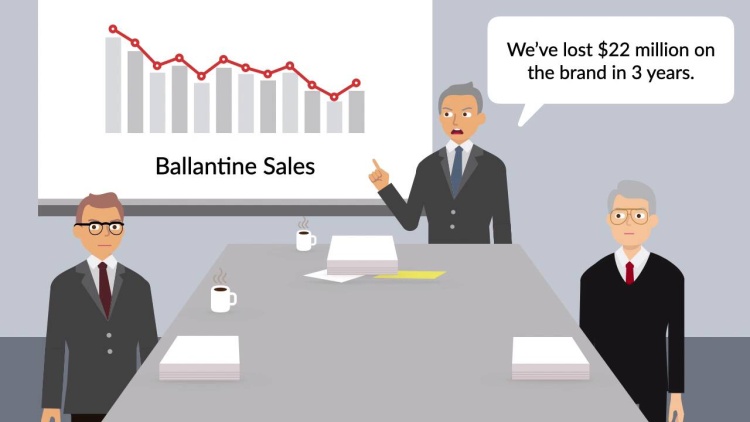Bloor v. Falstaff Brewing Corp.
United States Court of Appeals for the Second Circuit
601 F.2d 609 (1979)
- Written by Matt Fyock, JD
Facts
Bloor (plaintiff) filed suit to recover from Falstaff Brewing Corp. (defendant) for breach of a contract. Under the contract, Falstaff bought the Ballantine brewing labels, trademarks, accounts receivable, distribution systems, and other property except the brewery for $4 million plus a $0.50 royalty on each barrel of the Ballantine brands sold between April 1972 and March 1978. The issues on appeal dealt with two clauses in the contract: first, Falstaff’s promise to “use its best efforts to promote and maintain a high volume of sales” and second, a liquidated-damages clause, in which Falstaff promised to pay a cash sum to Bloor should Falstaff “substantially [discontinue] the distribution of beer under the brand name ‘Ballantine’” during the period April 1972 to March 1978. Falstaff discontinued certain illegal advertising and sales methods and substantially reduced the production budget of the Ballantine brand. The volume of Ballantine sales decreased due to these measures, but Falstaff’s overall financial performance improved. Bloor claimed that Falstaff had breached the best-efforts clause and that its default amounted to the substantial discontinuance that would trigger the liquidated-damages clause. The trial court found for Bloor on the breach of the best-efforts clause but dismissed the claim for liquidated damages.
Rule of Law
Issue
Holding and Reasoning (Friendly, J.)
What to do next…
Here's why 904,000 law students have relied on our case briefs:
- Written by law professors and practitioners, not other law students. 47,100 briefs, keyed to 995 casebooks. Top-notch customer support.
- The right amount of information, includes the facts, issues, rule of law, holding and reasoning, and any concurrences and dissents.
- Access in your classes, works on your mobile and tablet. Massive library of related video lessons and high quality multiple-choice questions.
- Easy to use, uniform format for every case brief. Written in plain English, not in legalese. Our briefs summarize and simplify; they don’t just repeat the court’s language.





